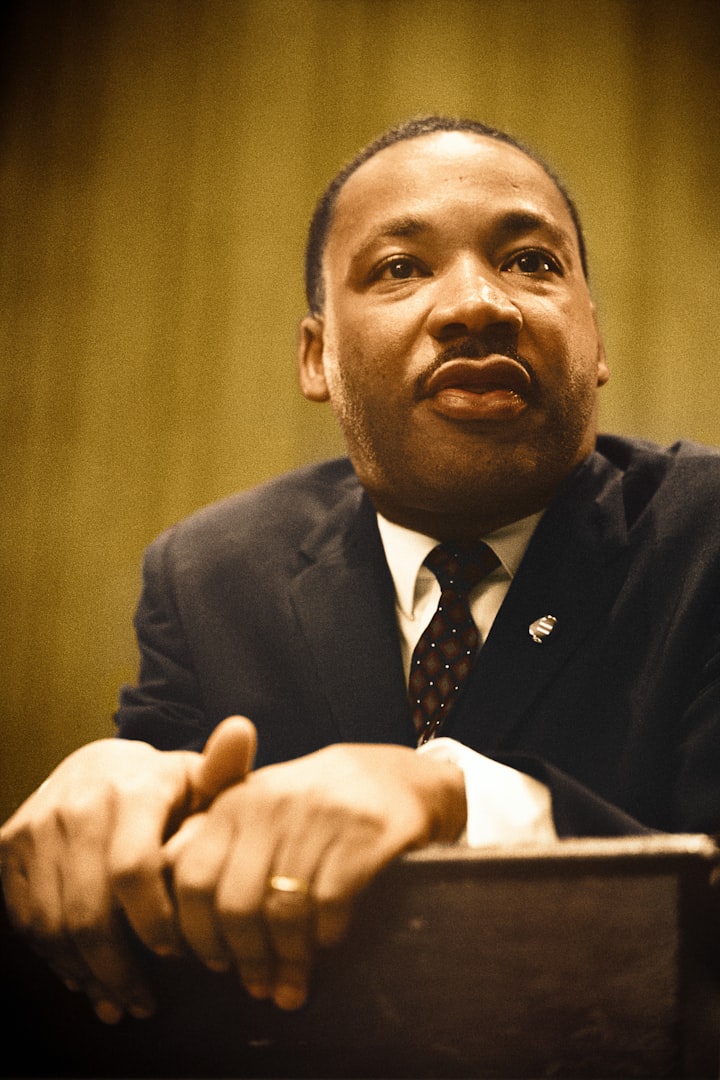Unveiling the Essence: What is Martin Luther King Day?
Unveiling the Essence: Understanding Martin Luther King Day and Embracing a Legacy of Justice and Service

Martin Luther King Day, an annual celebration in the United States, holds profound significance, transcending mere observance. As we delve into the history, meaning, and impact of this day, we aim to unravel the layers of its essence. This article is your comprehensive guide to understanding the intricacies of Martin Luther King Day, answering the question: What is Martin Luther King Day?
1. The Historical Tapestry: Martin Luther King Jr.'s Legacy
Martin Luther King Day is not just a date marked on the calendar; it's a tribute to the iconic civil rights leader, Martin Luther King Jr. Born on January 15, 1929, in Atlanta, Georgia, King's indomitable spirit led the charge against racial segregation. His pivotal role in the American Civil Rights Movement left an indelible mark on the nation's conscience.
1.1 Early Life and Influences
To comprehend the genesis of Martin Luther King Jr.'s transformative journey, we must explore his early life. Growing up in a devout Baptist family, King was imbued with the teachings of nonviolent protest through his exposure to Mahatma Gandhi's principles. These formative years laid the groundwork for his future activism.
King's pursuit of knowledge took him to Morehouse College, where he honed his intellect and sharpened his understanding of social justice. The profound impact of theologians like Reinhold Niebuhr shaped his philosophy, providing the intellectual underpinning for his commitment to equality.
2. The Birth of Martin Luther King Day
The genesis of Martin Luther King Day as a national holiday is a testament to the enduring legacy of the man it commemorates. It was not an overnight realization but the culmination of tireless efforts by advocates who believed in honoring King's contributions.
2.1 The Struggle for Recognition
In the aftermath of Martin Luther King Jr.'s assassination in 1968, Congressman John Conyers introduced legislation to establish King's birthday as a federal holiday. However, it took years of persistent activism, led by Coretta Scott King and the Southern Christian Leadership Conference, before the bill gained momentum.
2.2 Presidential Approval and National Recognition
The turning point came in 1983 when President Ronald Reagan signed the bill into law, designating the third Monday of January as Martin Luther King Day. The inaugural observance occurred on January 20, 1986, aligning with King's actual birthday.
3. Martin Luther King Day: A Day of Service
Beyond its symbolic significance, Martin Luther King Day is observed as a day of service—a call to action echoing King's commitment to community and equality.
3.1 Community Engagement and Volunteerism
The ethos of Martin Luther King Day lies in service to others. Across the nation, individuals and organizations engage in volunteer activities, ranging from community clean-ups to educational initiatives. This collective effort aims to transform the holiday into a "day on, not a day off."
3.2 Impact on Education
Educational institutions play a pivotal role in commemorating Martin Luther King Day. Schools and colleges organize special programs and discussions, fostering dialogue on racial equality, social justice, and King's enduring legacy.
4. The Relevance of Martin Luther King Day Today
As we navigate the complexities of the 21st century, the relevance of Martin Luther King Day endures, serving as a beacon of hope and a catalyst for change.
4.1 Contemporary Activism and Civil Rights
The resonance of Martin Luther King Jr.'s teachings reverberates in contemporary social justice movements. Activists draw inspiration from his advocacy for equality, justice, and nonviolent resistance, weaving his principles into the fabric of their own struggles.
4.2 Challenges and Unfinished Business
While progress has been made, challenges persist. Martin Luther King Day serves as a reminder of the unfinished business in the pursuit of equality. Racial disparities, systemic injustices, and the ongoing struggle for civil rights underscore the continued relevance of King's dream.
5. Conclusion: Celebrating the Legacy
In conclusion, Martin Luther King Day transcends the boundaries of a conventional holiday. It is a tribute to an extraordinary leader, a celebration of community, and a call to action for a more just society. As we commemorate this day, let us reflect on King's timeless words: "Injustice anywhere is a threat to justice everywhere."
In unraveling the essence of Martin Luther King Day, we find not just a historical event but a living legacy that inspires us to strive for a more equitable and compassionate world.





Comments (1)
This writing was outstanding. I liked it a lot and couldn't find any flaws. You're welcome! on vocal May you have a day full of smiles, always!